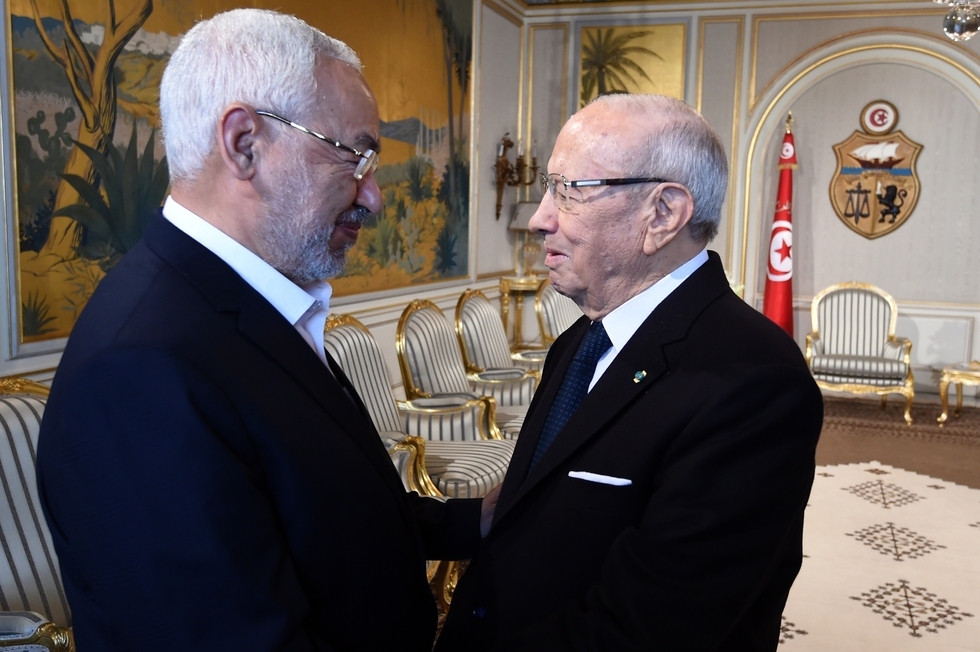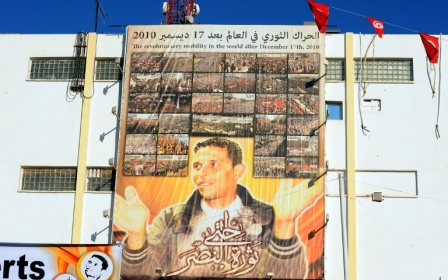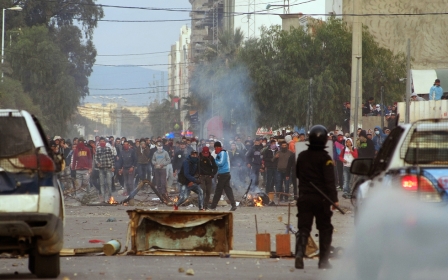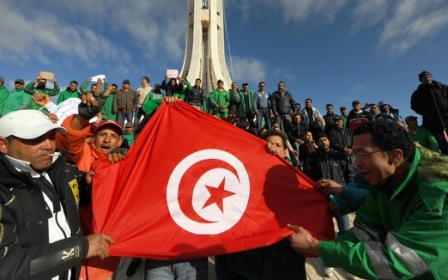Islamists and secularists in Tunisia: A democratic success in the making

Last week, United Nations Secretary-General Ban Ki-moon attended the closing session of the first National Dialogue on Employment in Tunisia, where he commented on the country's democratic progress.
At a press conference, he said: “We [the World Bank President and I] have just met with his excellency President Beji Caid Essebsi. I congratulated him for the democratic progress made in Tunisia. I also lauded his efforts to reduce social and economic inequalities. I assured him that the United Nations supports Tunisia's citizens and government at a time when the country is in transition.”
Tunisia’s transition is not complete. The country has not yet consolidated its democracy - the only one to emerge from the so-called Arab Spring. Also, the government led by Prime Minister Habib Essid still needs to raise economic growth, which holds the key to national stability.
The international community must continue to support the extraordinary democratic progress that has occurred in Tunisia so far, and credit Ennahda, the country’s largest Islamist party, for the positive progress that has been made at the political level.
Furthermore, the international community must assist the Tunisian government to achieve progress on other levels, particularly on the economy.
The transition
Around 10am on 17 December 2010, police officers confiscated the fruit cart and the electronic weighting scale of Mohammed Bouazizi, a 26-year-old Tunisian who worked as a street vendor in the town of Sidi Bouzid.
Less than an hour later, Bouazizi attempted to lodge a complaint at the provincial office of Sidi Bouzid, where he was denied audience. In protest, he set himself on fire at the entrance of the building.
Eighteen days later, Bouazizi died at the burn and trauma centre in the Tunisian coastal town of Ben Arous. By then, his self-immolation had triggered a series of national protests against the autocratic regime of President Zine el-Abidine Ben Ali, who had held office since 1987.
In turn, these protests triggered a wave of revolutions in the Middle East and North Africa region (MENA) against the rule of autocratic regimes. This wave, commonly known as the Arab Spring, contained little overt involvement of Islamic groups, and very little Islamist rhetoric.
The Arab Spring in Tunisia, also referred to as the Jasmine Revolution, destroyed the one-party structure that had defined political life since the country’s independence in 1956. It also prompted the re-emergence of suppressed opposition movements.
The democratic transition that followed is conceived of as an extraordinary success: unlike its regional neighbours, Tunisia emerged from the Arab Spring as a functioning democracy.
On 23 October 2011, less than a year after Bouazizi’s self-immolation, Tunisians elected a new constituent assembly. The Islamist party Ennahdha (The Renaissance Party), which was illegal during the regime of President Zine el-Abidine Ben Ali, won more than a third of the seats, becoming the strongest party in Tunisia’s first freely elected government.
To the pleasant surprise of many, Ennahdha embraced compromise with secular political forces, and formed a cross-ideological coalition government with two non-Islamist parties: Congress for the Republic and Ettakatol.
However, once in power, Ennahdha appeared to be practicing the same majoritarianism as Mohamed Morsi’s Muslim Brotherhood in Egypt. Tunisians feared that Ennahdha might be using democracy as a long-term strategy to impose an Islamic code on Tunisian life.
Moreover, Ennahdha seemed to embrace Tunisian Salafi elements. It sought their inclusion to the political arena, a vital step towards a comprehensive democratic government.
This accommodating position severely hurt Ennahdha’s political interests, particularly following the assassinations of secular, left-wing politicians Chokri Belaid and Mohamed Brahmi.
Consequently, and pragmatically, Ennahdha changed its position toward Ansar al-Sharia, a Tunisian Salafi-jihadi group, and declared it a terrorist organisation.
Nevertheless, anti-Ennahdha protesters called for the dissolution of the National Constituent Assembly, and for new elections.
Fortunately, the Islamist-led post-revolutionary leadership was willing to work together with opposition parties to promote a peaceful political process rooted in consensus, the rule of law and respect for human rights.
Peaceful negotiations were led by the Tunisian National Dialogue Quartet, a coalition of civil society organisations that offered a viable alternative to violence, political assassination and civil unrest.
In January 2014, Ennahdha agreed to surrender power to a politically neutral caretaker government. A peaceful compromise like this had never happened in the region.
This extraordinary process led to the adoption of a new secular constitution in early 2014, and to free parliamentary and presidential elections later that year. The secularist party Nidaa Tounes (Call of Tunisia) won 86 seats in the 217-seat parliament. Its leader, Beji Caid Essebsi, was elected president of Tunisia.
In October 2015, the international community recognised the work of the Quartet by awarding it the Nobel Peace Prize. While this international recognition is encouraging, the international community must do more to help Tunisia face new challenges.
New challenges
Despite the political progress that has been achieved so far, Tunisia still needs to solidify its democracy.
In order to do so, Tunisian leaders must fully address the underlying socioeconomic problems that triggered the protests in late 2010, and implement major economic reforms to combat high inflation and widespread unemployment, especially among the youth.
Furthermore, Tunisian leaders need to implement major economic reforms to combat high inflation and widespread unemployment, especially among the youth.
If the economic stagnation in Tunisia persists, the government might be unable to offer economic opportunity to its citizens, and Tunisia’s democracy might stagnate.
Also, Tunisian leaders must address security threats from violent groups operating within Tunisia’s borders and in neighbouring Libya, as well as domestic radicalisation.
Today, between six and seven thousand Tunisians have waged jihad in Syria and Iraq. These estimates make Tunisia, a country of 11 million people, the leading producer of jihadists.
If the government is unable to guarantee security and stability, the country might collapse, starting with its tourism industry.
These economic and security challenges threat the political achievements that Tunisia has achieved so far, as well as European neighbouring countries.
The international community must conceive of Tunisia as a democratic ally in a geostrategic region. As such, the international community must increase its assistance to Tunisia, so the country can successfully face its current economic and security challenges.
- Tania Ildefonso Ocampos is a Spanish political analyst who specialises in EU strategy in the Middle East. She is a former Schuman trainee (Euro-Med and Middle East Unit of the European Parliament's Directorate-General for External Policies), and holds an MA in Middle Eastern History from Tel Aviv University, Israel.
The views expressed in this article belong to the author and do not necessarily reflect the editorial policy of Middle East Eye.
Photo: Tunisian President Beji Ceid Essebsi (R) shakes hands with Ennahdha Islamist party Leader Rached Ghannouchi in Tunis, during an event marking the anniversary of the ousting of Tunisia's longtime ruler Zine el Abidine Ben Ali, that sparked the Arab Spring uprisings on 14 January, 2015 (AFP).
New MEE newsletter: Jerusalem Dispatch
Sign up to get the latest insights and analysis on Israel-Palestine, alongside Turkey Unpacked and other MEE newsletters
Middle East Eye delivers independent and unrivalled coverage and analysis of the Middle East, North Africa and beyond. To learn more about republishing this content and the associated fees, please fill out this form. More about MEE can be found here.





